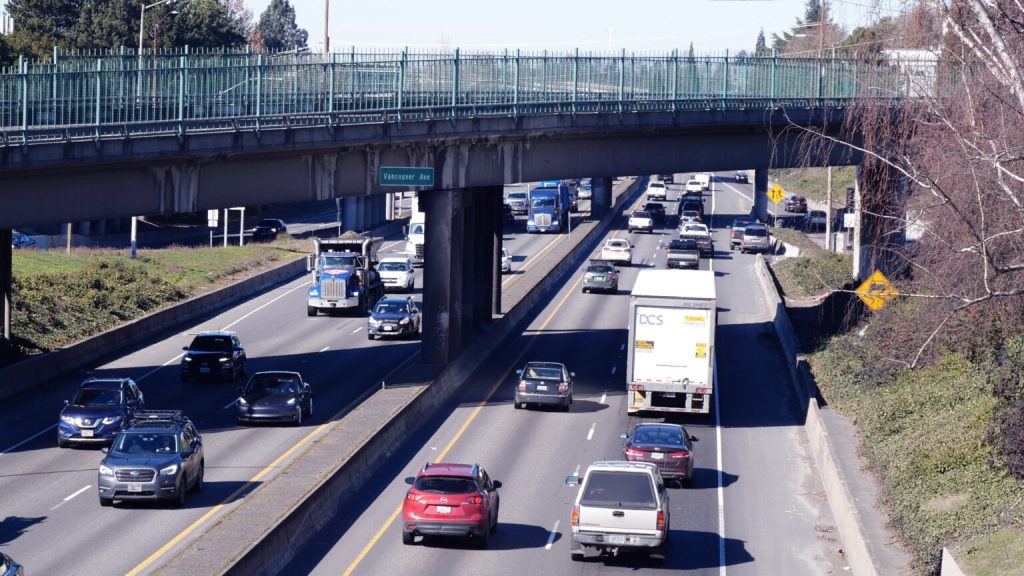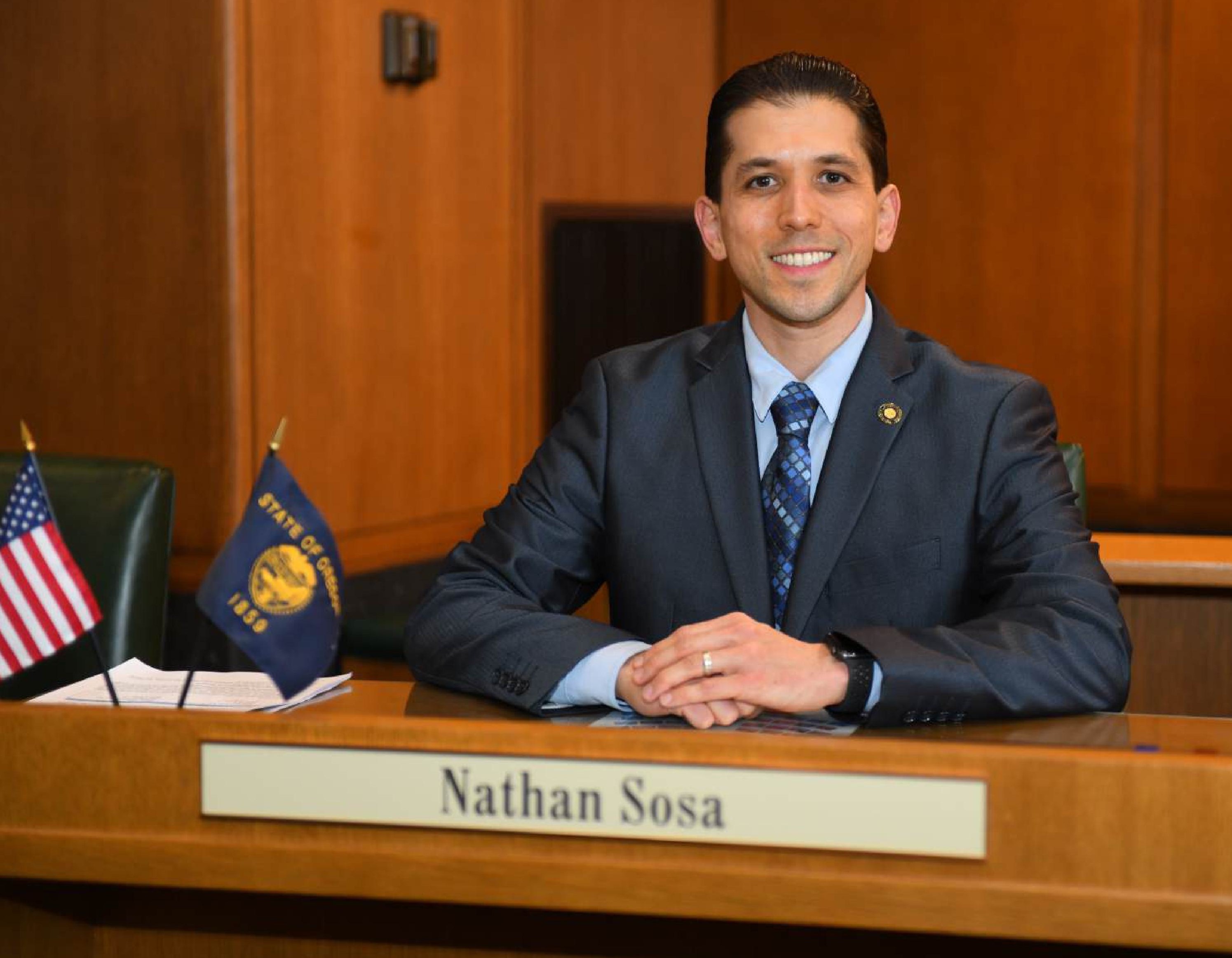U.S. Senate vote to nix California tailpipe emissions standard blocks 17 other states, including Oregon
Published 6:31 am Friday, May 23, 2025

- Traffic on Interstate 5 in Portland. (Oregon Department of Transportation/Flickr)
The U.S. Senate voted early Thursday to prevent California from enforcing regulations on tailpipe emission from new cars and trucks, upending state regulations for the nearly 40% of Americans whose states follow California standards.
The House has already passed an identical measure, meaning the Senate vote sends the resolution to President Donald Trump’s desk.
The 51-46 vote, with Michigan Democrat Elissa Slotkin joining all Republicans present to vote in favor, cleared a Congressional Review Act resolution repealing Environmental Protection Agency waivers that allow California to set regulations for emissions from cars and light-duty trucks.
Trending
The state policy includes a ramp-up to having no new gas-powered cars sold in the state by 2035.
Democrats blasted the near-party-line vote for contradicting the Senate parliamentarian, who’d ruled the waiver that the EPA had granted to California to set its own tailpipe standards was not a regulation that could be rolled back under the Congressional Review Act, or CRA.
The CRA allows for a simple majority in the Senate to vote to repeal recent executive branch rules, bypassing the chamber’s usual 60-vote threshold for legislation.
‘Chaos and uncertainty’ around the U.S.
The EPA under President Joe Biden issued waivers under a Clean Air Act provision that allows California, which had more stringent standards than what Congress enacted in the 1970 law, to set its own standards for air pollution.
No other state is allowed to set independent standards, but any state may adopt California’s.
For the light-duty vehicle emissions rule, 17 other states — Colorado, Connecticut, Delaware, Maine, Maryland, Massachusetts, Minnesota, Nevada, New Jersey, New Mexico, New York, Oregon, Pennsylvania, Rhode Island, Vermont, Virginia and Washington — and the District of Columbia adopted some portion of the standard.
Trending
The action by the Senate, particularly because of the mechanism for revoking the waiver, made the future of the standards in all those states uncertain, Justin Balik, vice president for states at the national environmental advocacy group Evergreen Action, said in a Thursday interview.
“What, fundamentally, they’re doing is sowing a huge amount of chaos and uncertainty in states around the country, not just in California,” he said of the senators.
Slotkin, who voted against procedural measures before her vote in favor of the resolution itself, said her vote was in defense of her state’s automotive industry. Slotkin campaigned on a promise not to allow an electric vehicle mandate.
“Today, I voted to prevent California and the states that follow its standard from effectively banning gas-powered cars by 2035,” she wrote in a statement. “I have a special responsibility to stand up for the more than one million Michiganders whose livelihoods depend on the U.S. auto industry.”
Debate over choice
Critics said the state regulation was effectively an electric vehicle mandate that robbed consumers of the option to purchase the vehicle of their choice.
Because of California’s market share — the state accounts for 11% of cars and trucks sold in the country, according to the California Air Resources Board — and adoption by other states, the Golden State standard had a virtually nationwide effect, they argued.
Republicans in the Senate focused on the 2035 deadline to end sales of new gas-powered vehicles, describing it as an electric vehicle mandate.
In a video posted to social media, the Senate’s No. 2 Republican, John Barrasso of Wyoming, stood next to Shelley Moore Capito, the West Virginia Republican chair of the Senate Environment and Public Works Committee, and touted the vote as a victory for consumer choice.
“Republicans have defeated Democrats’ delusional dream of forcing every American to drive an electric vehicle,” Barrasso said. “They wanted to force-feed the entire country things that don’t necessarily work, not practical.”
But proponents of the California standards said the Senate was removing choice from state policymakers, despite Republicans’ longtime advocacy for state and local control.
Manish Bapna, the president of the advocacy group Natural Resources Defense Council, blasted the move in a statement that said senators undermined state power.
“This vote is an unprecedented and reckless attack on states’ legal authority to address the pollution causing asthma, lung disease and heart conditions,” Bapna said. “After a multi-million dollar lobbying campaign from Big Oil, Republicans readily jettisoned their long-held view that states can best enact measures that reflect the values and interests of their residents.
“If other states don’t like California’s approach, they don’t need to follow it,” the statement continued. “But federal lawmakers shouldn’t be intervening to block states from providing cleaner air and a healthier environment.”
Procedural fight
Republicans’ use of the Congressional Review Act provoked a backlash from Democrats and environmental allies, who described it as “going nuclear” to tank the chamber’s filibuster rule.
The Senate parliamentarian and the nonpartisan Government Accountability Office said the waiver could not be repealed with a CRA resolution, but Senate Republicans opted to use the procedure anyway.
“Senate Republicans exposed themselves as fair weather institutionalists. By overriding the parliamentarian — which the chair explicitly noted that the parliamentarian has been overridden — and in order to do the bidding of the fossil fuel industry, Republicans have eroded away at the Senate foundation and undermined this institution they claim to care about,” Senate Minority Leader Chuck Schumer, D-N.Y., said after a procedural vote late Wednesday.
Republicans defended the move, saying they were responding to an unprecedented case in the chamber. The question of how Senate rules applied to the waiver should be decided by senators themselves, Majority Leader John Thune said.
“I believe that when the Senate is facing a novel situation like this one, with disagreement among its members, it is appropriate for the Senate to speak as a body to the question – something the Senate does when questions over application of the rules arise,” he said in a floor speech.
Thune, of South Dakota, noted that the Senate resolved a rules question with a floor vote just last year after a Democrat raised a point of order against a Republican’s attempt to fast-track a measure.
“Nobody at the time cried nuclear, nobody said the Democrat member was blowing up the Senate – in fact, most members probably don’t even remember the situation, because it was just the Senate doing what the Senate is supposed to do, and that’s voting on how to apply the rules when faced with a new situation.”
Uncertainty abounds
Critics of the move attacked the process, the policy and the precedent, saying the Senate undid a half-century of a California-federal government relationship regarding the Clean Air Act that had served all parties well.
John Boesel, the president and CEO of clean transportation industry group CALSTART, called the Senate action radical.
“This vote upends decades of policy that has successfully resulted in cleaner air and the growth of a robust clean transportation industry,” he said in a statement. “It is a brazen, yet futile, attempt to bring the clean transportation industry to a sudden halt. CALSTART will continue to partner with the states working to fill this gaping void left by today’s federal action.”
And the unusual use of the Congressional Review Act will likely lead to lawsuits from California and at least some of the states that follow it to “protect their authority,” Balik, of Evergreen Action, said.
“But that’s going to take some time to play out,” he said. “In the meantime, the whole marketplace has been plunged into unnecessary chaos. Part of what the industry always says is, ‘We need certainty.’ And if anything, right now, we have the exact opposite thanks to what Congress is doing.”







